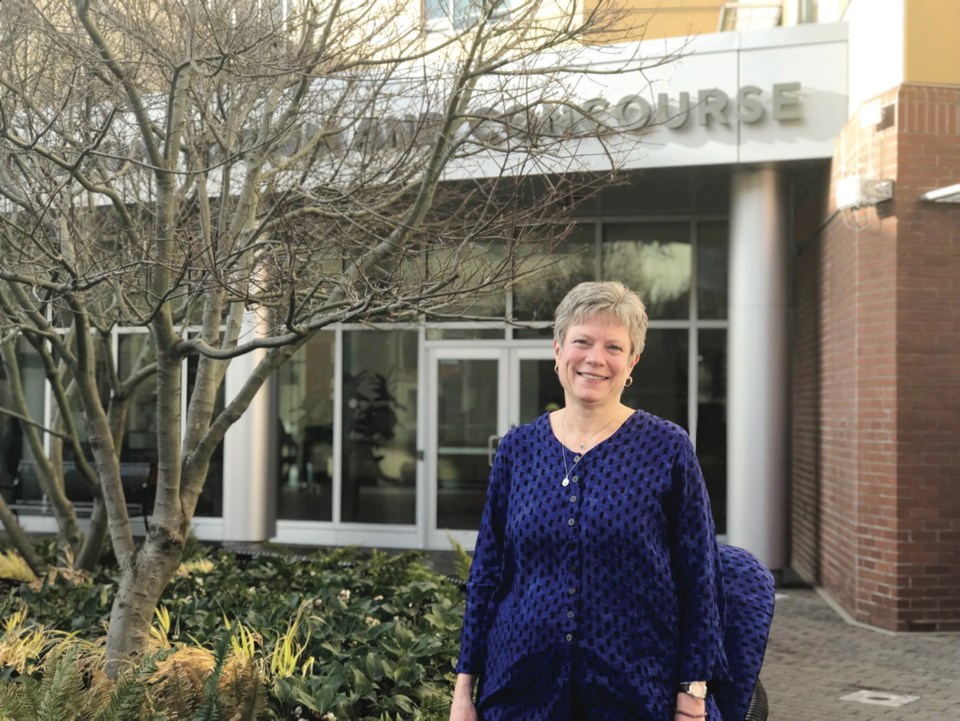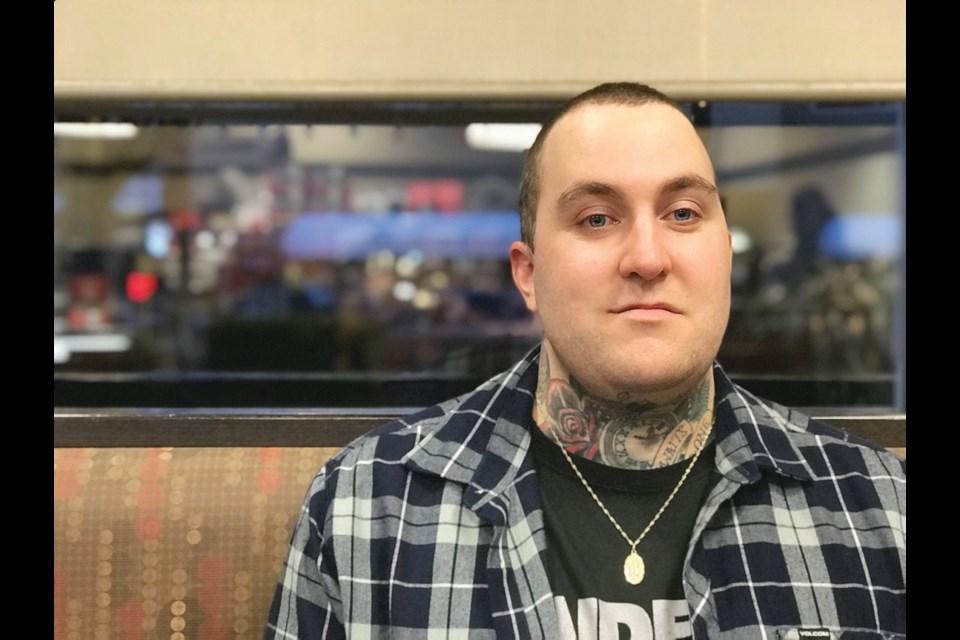This is one of a series of stories about the Victoria Hospitals Foundation’s campaign called You Are Vital.
Todd Wells is the first to admit that he didn’t always make the best choices when he was younger.
Despite battling asthma from the age of five — he ended up in hospital for nearly three months at one point — he still took up smoking at the age of 11.
“Not the proudest moment,” he says. “A thousand people told me: ‘Don’t smoke when you’ve got asthma.’ I never thought anything of it.”
He didn’t have to, at first. He skateboarded and rode BMX bikes, and nothing seemed to bother him.
But, as the years progressed, his asthma got worse. Everyday allergens would set it off and leave him coughing and wheezing.
“It was just random,” he says. “It could be dust or cat hair. Something would go in my nose and make me sneeze and it would be over for me.”
His lungs would go “berserk,” his head would pound and he’d get so dizzy that he’d almost pass out.
By last fall, he knew that something was seriously wrong. Simple tasks became a struggle. A mild workout at the gym left him gasping for breath, and he was using his emergency inhaler up to 10 times a day.
He was 30 years old.
“I went to the doctor thinking it was something extremely terrible, which it more or less was.”
The doctor referred Wells to the respiratory team at Royal Jubilee Hospital; it was a visit that would change his life.
His file landed on desk of Theresa Gilbert, one of 40 respiratory therapists at Royal Jubilee.
Although less well-known than some of the higher profile professions such as doctors and nurses, respiratory therapists have their hands in all areas of the hospital, from the emergency department to pediatrics to the intensive-care unit.
“Everywhere that somebody needs to breathe, you’ll find a respiratory therapist,” Gilbert says. “We deal with lungs and we work closely with the respirologists.”
For her part, Gilbert works in the pulmonary-function testing laboratory — a place that most people have never heard about, but where people with lung problems undergo rigorous testing that could end up saving their lives.
“It’s the one diagnostic test that people have to work hard at,” Gilbert says. “It’s not like going in for a chest X-ray where they get to stand and have an image done. They have to breathe in and out of our machines to get valid, reproducible data.”
The tests assess a patient’s lung capacity as well as lung function, which is how much air a patient can blow out in a second.
Gilbert has seen a lot of people with histories and symptoms exactly like Wells’s.
“I can’t tell you how many of these guys and gals that I meet,” she says. “I had a fellow Friday night and he was like another Todd Wells. Honestly, same age, childhood asthma, smoker, works in construction.”
And, like Wells, he was having trouble breathing.
In Wells’s case, testing showed that his lung function was shockingly low at just 45 per cent — a number that he says hit him “like a ton of bricks.”

The test results and Gilbert’s ability to explain what was going on in his lungs convinced Wells to change his life then and there.
“I think it was the day after that that I quit smoking,” he says. He hasn’t had a cigarette since.
From Gilbert, Wells got referred to Mark Finnis, a certified respiratory educator, who taught Wells how to use his inhalers properly and manage his medication.
The combination of quitting smoking and properly managing his asthma had a dramatic impact, Wells says.
Within six weeks, his lung function improved to 87 per cent and he felt better than he had in years.
“I can actually breathe,” he said in a recent interview. “I don’t get tuckered out real fast. It’s weird because I never really noticed it until I quit smoking.
“Even waking up in the morning, I don’t feel like I have to cough or anything like that. I don’t have to hit the puffer.”
He still carries an inhaler, but says he can’t remember the last time he had to use it.
“It’s a total difference. Night and day. Ever since doing those tests, that has totally changed my life.”
Wells said he and his girlfriend are looking to the future and planning to have a family.
“I feel like a million bucks,” he said.
Now, Wells says he’s hoping to help others by speaking out in support of the Victoria Hospitals Foundation’s You Are Vital campaign, which is raising $100,000 for a new pulmonary function machine to diagnose 8,000 patients a year just like him.
It’s “insanely important,” he says, that professionals such as Gilbert have the equipment to do their jobs so that they can make a difference in other people’s lives.
“In my situation, it kind of saved my life,” he says. “I’m sure if it can save mine, it can save many more.”
The series
- Trip to doctor for 'cold' led to discovery of cancer in lung
- Putting moms and newborns first at Victoria General Hospital
- When the doctor becomes the patient
- Royal Jubilee lung tests prove a lifesaver for asthma sufferer
- Artist Robert Bateman takes hospital’s care to heart
- Heart attack a timely wake-up call



